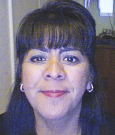I've been fortunate to be strong and healthy for most of my life. In fact, there is no history of any serious illness in my family, which is why I was so unprepared to hear the words “You have breast cancer” 5 years ago. Not only was the diagnosis foreign to me, I had no idea what chemotherapy and radiation were—or even who an oncologist was—and why they might be important in my care. To go from thinking I was completely healthy to being told I needed immediate surgery, followed by chemotherapy and radiation, was so frightening and bewildering that it took me several weeks to figure out what was happening and what my course of action should be.
Hearing the Diagnosis
I first noticed something was wrong when I unexpectedly became weak and faint while on my job as a home caregiver. A short while later, I noticed a large bruise on my right breast, but I didn’t relate the two incidents. Thinking I must have somehow bruised my breast while caring for my patient, I put it out of my mind. A few days later, I noticed a lump the size of a golf ball in my breast, which seemed to be growing almost before my eyes.
A physical examination and blood tests performed by my primary care physician revealed that I was severely anemic, which explained the bruise and my lightheadedness but not the growing tumor. I was sent to the emergency room of my local hospital for a blood transfusion. While I was there, a nurse suggested I have a mammogram, and that’s how I found out I had breast cancer. A physician in the hospital told me that a biopsy showed my cancer was stage III invasive ductal carcinoma and I needed immediate surgery. He delivered the news in such a callous way that I said I needed time to think about it and never went back.
Experiencing a Miracle
Finally, I found my way to a surgical oncologist who clearly explained my health situation and his recommendations for treatment. First, he would perform a lumpectomy to remove the tumor and several lymph nodes to test for spreading cancer cells and then wanted me to have adjuvant chemotherapy and radiation to kill any errant malignant cells. Worried about the damage chemotherapy and radiation might do to my body, I refused the treatment. “Okay,” said my oncologist. “Let’s see what the situation is after the surgery, and then we’ll make a decision.”
When I saw my oncologist for a follow-up visit 7 days after my surgery, he gave me the good news: The pathology report showed that the surgical margin of the tissue and all seven lymph nodes he removed were clear of disease. I was cancer-free.
“Lisa, I’ve been in practice for 25 years, and you are my first miracle,” he said. “You no longer have cancer, and I’m amazed.” He still recommended adjuvant chemotherapy and radiotherapy to be safe, but the decision, he said, was mine. I choose not to have additional therapy.
I have a strong faith and believe that prayer helped steer me to the right decision, and I have no regrets.
A Caring Medical Team
I had so little experience with illness and the world of medicine that I felt especially vulnerable. Until I finally found the surgical oncologist who treated me, none of the previous doctors I met with ever asked me what I knew about cancer or whether I had any questions about the suggested treatment. One nurse I saw, who I’m sure thought she was being helpful, shoved more than a dozen booklets about breast cancer into my hands, but without someone to help me navigate my way through all the information, I was completely lost.
Hearing the words “you have cancer” will always be difficult to process, but having a caring medical team to help explain what those words mean makes that process easier. ■
Lisa Arzola lives in Long Beach, California.


